
Sponsored By: Vanta
This essay is brought to you by Vanta, the leading Trust Management Platform. Need SOC-2 Type I? They can help you get it in just two weeks.
Yohei Nakajima hates repetitive tasks. He hates them so much that he spends a lot of his time building AI bots that eliminate them from his life as much as possible.
Nakajima is a GP at a small venture firm, Untapped Capital, so he has a GPT-3 bot that answers common questions from founders. It emails responses to them and includes a way for him to refine them over time—so it continually improves.
He has another bot that automatically summarizes every email interaction he has. He reviews these before meetings so that he’s always up to date on founders and LPs.
He has another one that, given a startup’s website, can draft an investment memo that includes data like the company’s value proposition, a description of its product, its likely competitors, and even the sentiment from its Product Hunt launch.
It goes beyond his work life, too. He has a bot that summarizes and makes searchable emails from his kids’ schools—so he never has to spend time looking up deadlines or important events again.
He’s so well known for building these tools that the phrase “We should Yohei this” is a common refrain among his LPs, meaning: this task is boring and repetitive, so we should automate it.
In “AI and the Age of the Individual,” I argued that “rather than replacing individuals, recent advances in AI will empower them to make an impact on a scale matching some of the biggest businesses, research labs, and creative organizations of today.”
The tools that Yohei is building for himself are a prime early example of this dynamic in action. He told me that, as a venture capitalist, “Time is the number one blocker. If you can unlock time, you’re instantly better at your job.” That’s exactly what AI is enabling him to do. What might not have been possible for a small VC firm a few years ago might be eminently possible in a year or two if these tools continue to develop.
To be sure, the bots he’s building are early prototypes. They require more work and polish to function perfectly. But they’re already allowing him to spend less time on tasks that he doesn’t want to do—and more on the ones that he’s uniquely good at: sourcing deals and deciding on investments.
We sat down for an interview exploring what he’s building and what it means for the future of venture capital (and venture capitalists).
Do you need a SOC 2 ASAP?
Vanta, the leading Trust Management Platform, can help you get SOC 2 in two weeks. Get SOC 2 and close more deals, hit your revenue targets, and create a solid foundation for security best practices.
Yohei introduces himself
I’m a pre-seed venture capitalist running my own fund, Untapped Capital.
I’ve been working in startups my whole career. Initially, I tried to start my own right out of college. I made every mistake possible, but it helped me get connected with the LA startup scene. From there I worked for TechStars, where I helped to spin up their Disney accelerator, and eventually became their Director of Pipeline, where I was sourcing startups for about 30 accelerator programs.
During that time I realized I wanted to run my own fund. So I went to Scrum Ventures to learn the ropes of what it’s like to be in a venture firm. Eventually, I decided to start my own pre-seed fund called Untapped Capital. It’s a $10 million fund that I run with my co-GP, Jessica Jackley. That was a few years ago, and that’s what I’m doing full-time now.
I don’t like repetitive tasks
I’ve always been one of those people where I don’t like to do a task over and over again. If I’m doing something more than once, I want it to be automated. So I build little tools to help me in my day-to-day work as a VC. A lot of it is moving stuff away from my inbox. It’s either automating it fully or putting it on my to-do list.
Some of the tools I just use personally, and some of them I make available to the founders I invest in. They allow me to do more. I can do more work, answer more questions, make more intros, help more founders. The quality of the work the model does on its own is not going to be as high as if I’m doing it, but I can also help a lot more people at once.
For every VC, time is the number one blocker. If you can unlock time, you’re instantly better at your job. That’s what these tools allow me to do.
Mini Yohei
One of the first projects I built when I was getting into GPT-3 is what I call Mini Yohei. It’s a little wrapper around GPT-3 that asks questions that founders might usually ask a VC.
Answering those questions is something I do all the time, right? Founders ask me small questions and sometimes I have the answer. But sometimes I have to Google around and do research myself to get an answer—I don’t know or remember everything off the top of my head.
So I thought, “Maybe I could automate that?” That’s how I built Mini Yohei:
A founder can ask a question like, “Where do you think power will ultimately reside in the AI value chain?” It will email the founder an answer and cc me, too.
Once Mini Yohei responds to a question, I’ll follow up with my own answer, and the founder and I can talk about it. I end up responding faster to their original question because I have something to respond to. If it says something that’s a little bit off, I can just write a correction rather than having to write an entire answer.
I don't think you should ever, at this point especially, just believe AI flat out. That’s why I’m always cc’d on these. But, realistically, a lot of VC suggestions are generic. A lot of VCs are just reading up on how startups have worked in the past or talking about it with other VCs and founders. We're basically synthesizing that and applying it to whatever question the founder is asking.
A lot of that kind of thinking has been documented as blog posts. So an AI that's been trained on that corpus of text is going to be able to answer the most common questions that founders have. A more recent upgrade I made is Mini Yohei 2.0, which searches through VC blogs and provides answers grounded in those blog posts with citations. And this model gets better every time I use it.
On the backend, I actually have it generate three different answers because I'm trying to fine-tune modes to figure out what works. Some of the models are just prompt engineering to try to get things right. And some of them are trained on a Q&A that I’ve built out and uploaded.
Everything goes into an Airtable where I can mark answers that I think are best, and that goes back into the training set and updates the model:
I tell my founders: every time you ask a question here instead of Google, you're actually helping us build a tool to help future founders.
All of my email interactions are summarized and searchable
Before I meet with someone, I’m constantly looking through old notes and past emails to remember what we talked about. It’s a pain to do that, so I built a tool that solves it.
For every person I email with, it uses GPT-3 to generate a summary of all of our interactions. So I can just go look at one place in an Airtable and see all of the conversations I’ve had with someone summarized together.
It also does it based on the domain the email is from, so I can see a history of my interactions with all of the people at a particular company in one place:
I review this before I go into meetings, and it helps keep me updated on what the previous context was so that I can follow up on it when I talk to people.
I built a TechMeme email digest
I also built a tool to summarize and email me the headlines from TechMeme. If you look at TechMeme there’s so much text on this website:
So I built an email summary tool that sends me the headlines in a simple digest:
Now I just look at that email instead of TechMeme. It’s a tiny efficiency, but if you have a lot of these together they start to add up.
I built a tool to automate investment memos
I also built a tool to help me automate the first draft of investment memos.
Investment memos are a helpful tool to make sure that you’re documenting your thinking and capturing information, and you can look back and analyze mistakes that you might have made. This helps me do that a lot faster.
If I put in a URL for a company I’m looking at, it will scrape the website and create a memo with: a description of the product, the business model, the types of customers the company is serving, what the pain points are that they’re solving, technical risks, market risks, and more:
It even does an analysis of the sentiment of the Product Hunt launch of the product:
It shows me all of the positive comments and all of the negative ones.
I use it myself for every company we look at. It just speeds up a lot of the tasks I’d have to do anyway when I’m looking at new investments.
I’m also using it as a founder communication tool, which I didn’t imagine before I built it. I have an interface where if I’m looking at a new company, I can generate a memo and share it with the founder. I can say, “Hey, I had our AI tool build a little memo for you. Here’re some things I found that were interesting.”
It’s a really good way to start conversations with new founders and immediately add some value for them.
When I realized how fast this was, I ran an experiment where I generated 50 investment memos in a day and shared it with my founders. All of them were like, “This is incredible!” And it doesn’t require me a lot of time to do.
I can imagine these memos getting updated over time as the companies mature and we get new information, through investor updates or fundraises. So I don’t see this as a one-and-done tool, but as something that runs continuously to create a living record of companies as they go through their lifecycle.
I have a question-and-answer bot for my Airtable
I created a bot that can answer questions about all of the data I’ve collected in my Airtable. So for any database I have in Airtable, I can ask a question and get a response that’s generated from what’s inside of it.
For example, I have a database where I’ve collected articles with useful information about startups. I can ask it a question like, “What articles are about growth?”
It guesses what table it should look at based on the question and finds the most relevant rows in the table. Then it feeds those rows back into GPT-3 and GPT-3 will output an answer:
Where it gets more interesting is I can start asking questions like, “What is Yohei’s email?” It will go through my Airtable and find my email:
This is incredibly useful for anyone that has large Airtables with a lot of information. It makes that information easily accessible without having to scroll or search.
I built a school email summarizer
I’m also using these tools in my personal life. I built an app that summarizes all of the emails from my kids’ schools. So I have a private dashboard that gives me a list with a bullet-pointed summary of every email they send me.
I built it because I was really struggling with questions like, “When’s the next X event?” or “When do I have to sign them up for Y?”
Normally I’d have to search through my email and read through a bunch of things to find the answer. But with this I can just search for keywords and it will show me the bullet points of what I need to know. It’s really useful for busy parents.
How I think VC as a job might change with AI
VC is slow to change. The feedback loop is slow. But these tools are very useful. For example, having an automated summary of every interaction you have with every founder and every LP—every VC wants that.
I think automated investment memos and research that collects and synthesizes lots of information the second you’re interested in a company will be standard. There’s so much information that you can gather at the snap of a finger, and I think all of that will be table stakes.
It might also start to help with investment decisions, but I think where I sit at pre-seed, gut instinct and pattern recognition are still helpful. For me, it’s about using it to feed my gut instinct with the right information.
At pre-seed, my job is to source, decide, and support. A lot of these tools are just moving stuff away from my email inbox, because it lets me spend more time on those three things.
I want to use AI to help me focus on what I think I can do better than it can.
A few books I recommend
Train Your Mind, Change Your Brain— It’s about neuroplasticity, and the role of the Dalai Lama and the Buddhist community in helping us understand our mind.
Spark—This outlines the science we understand behind the impact of our physical health on our cognitive abilities.
Thanks to Ben Cmejla for introducing me to Yohei.
The Only Subscription
You Need to
Stay at the
Edge of AI
The essential toolkit for those shaping the future
"This might be the best value you
can get from an AI subscription."
- Jay S.
Join 100,000+ leaders, builders, and innovators

Email address
Already have an account? Sign in
What is included in a subscription?
Daily insights from AI pioneers + early access to powerful AI tools
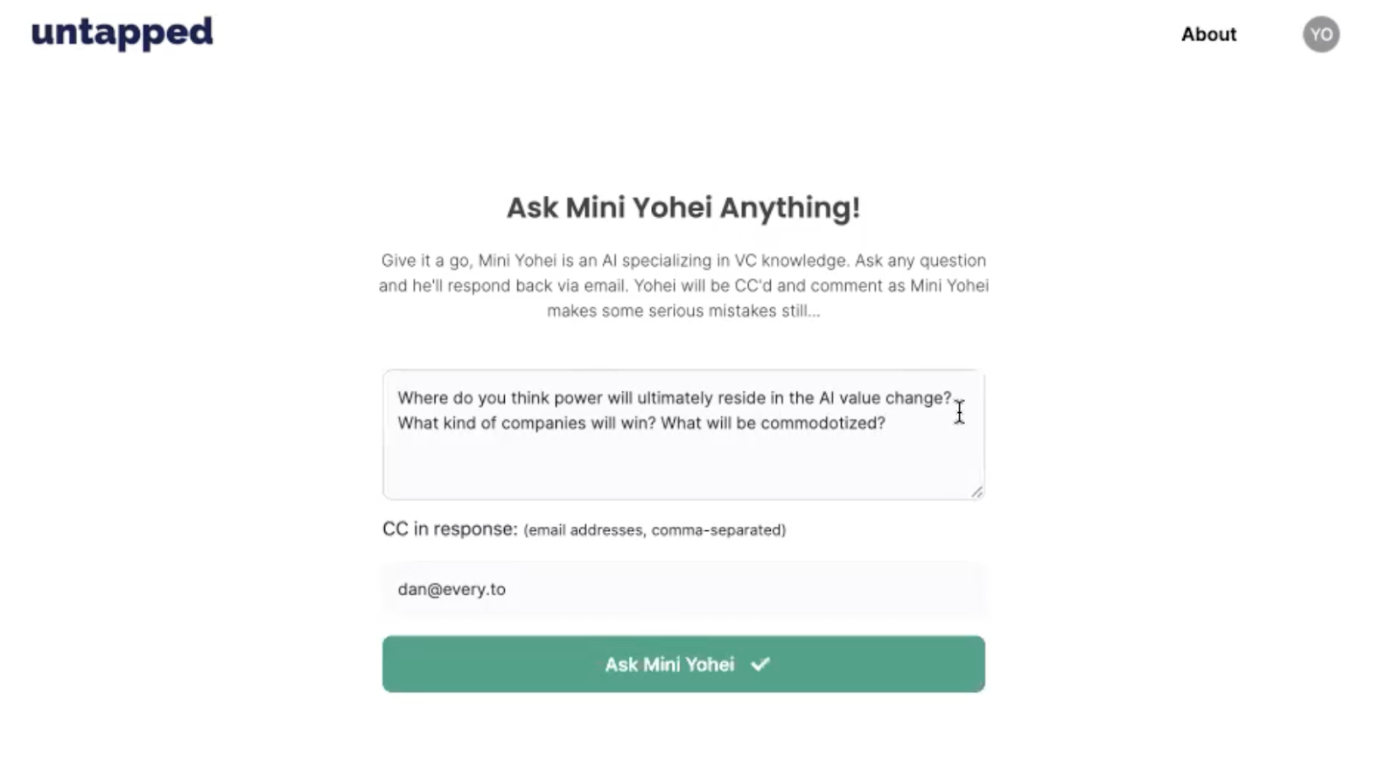
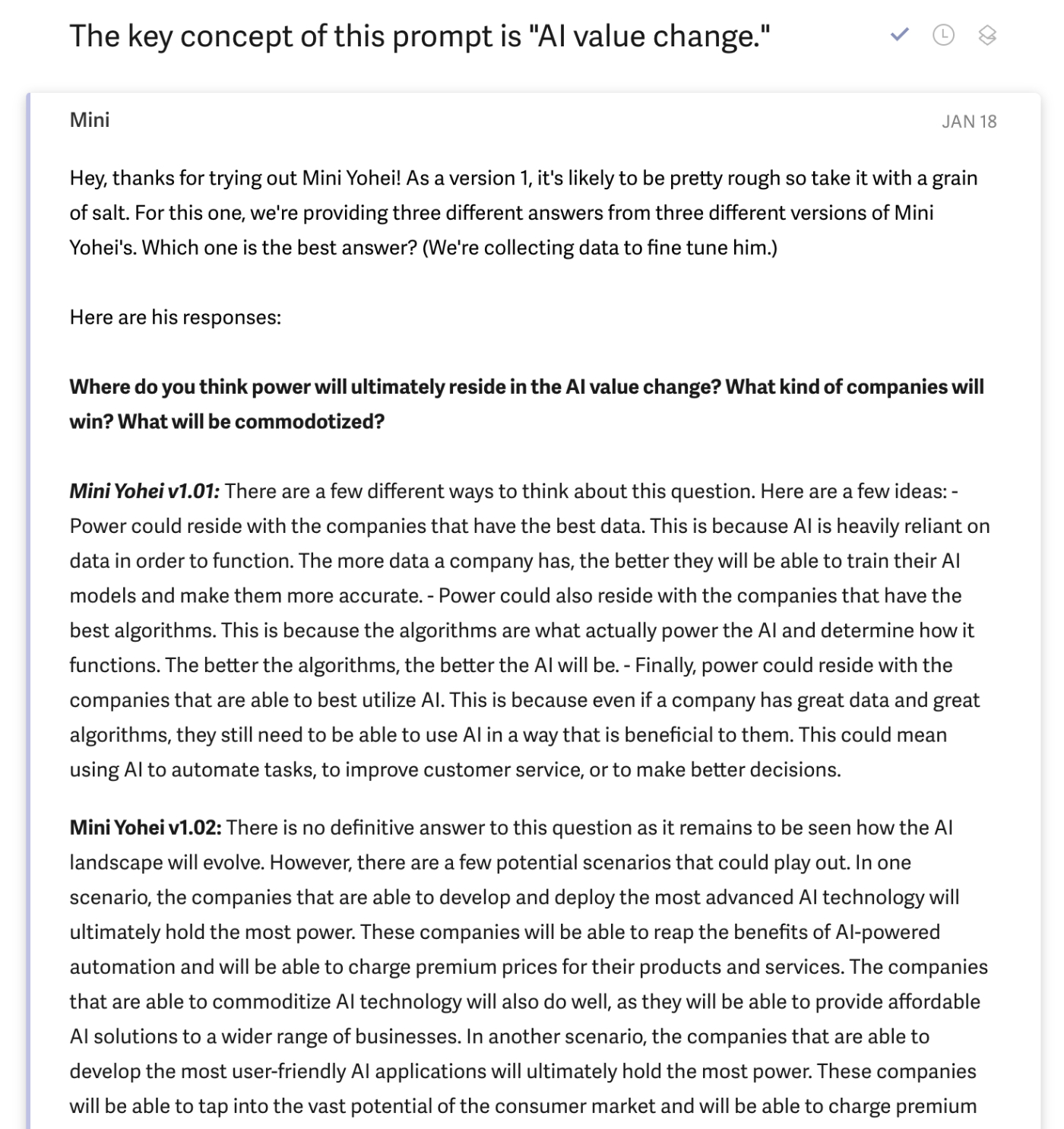
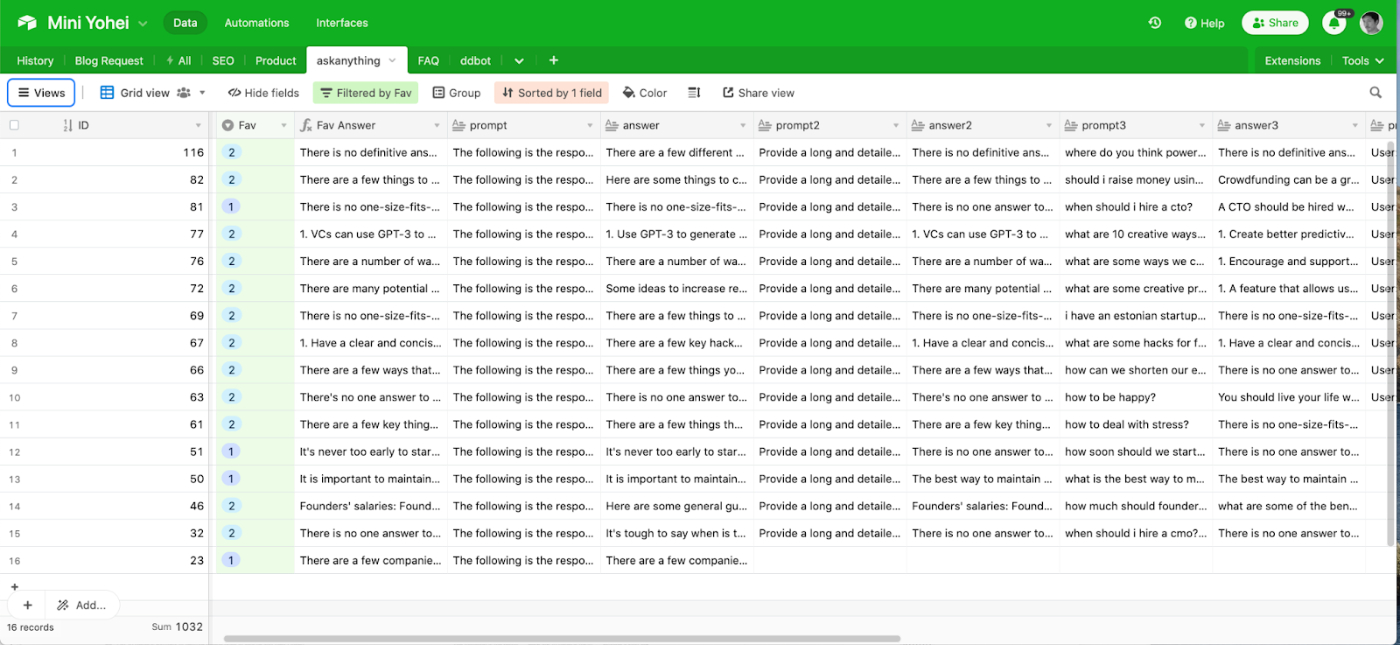
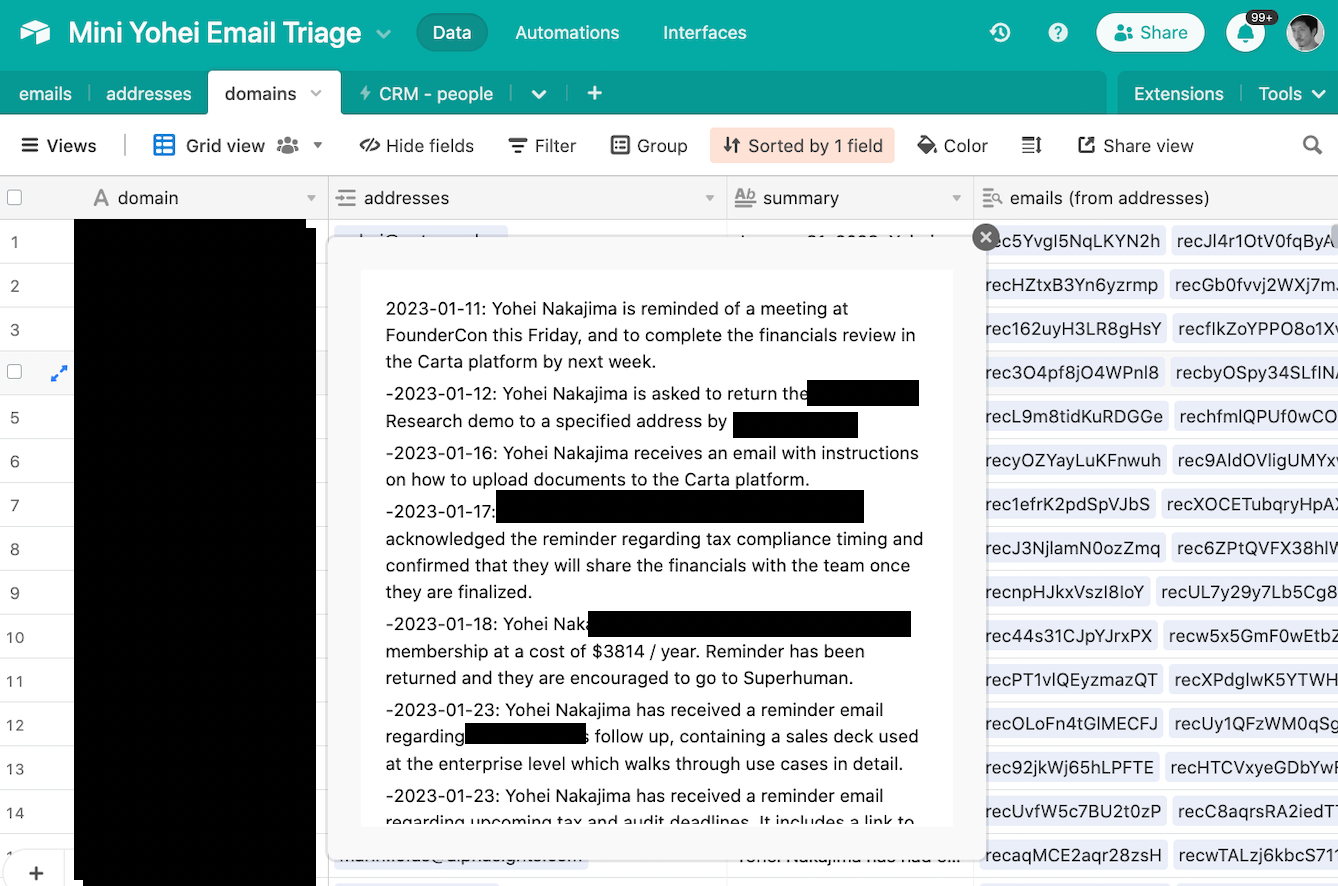
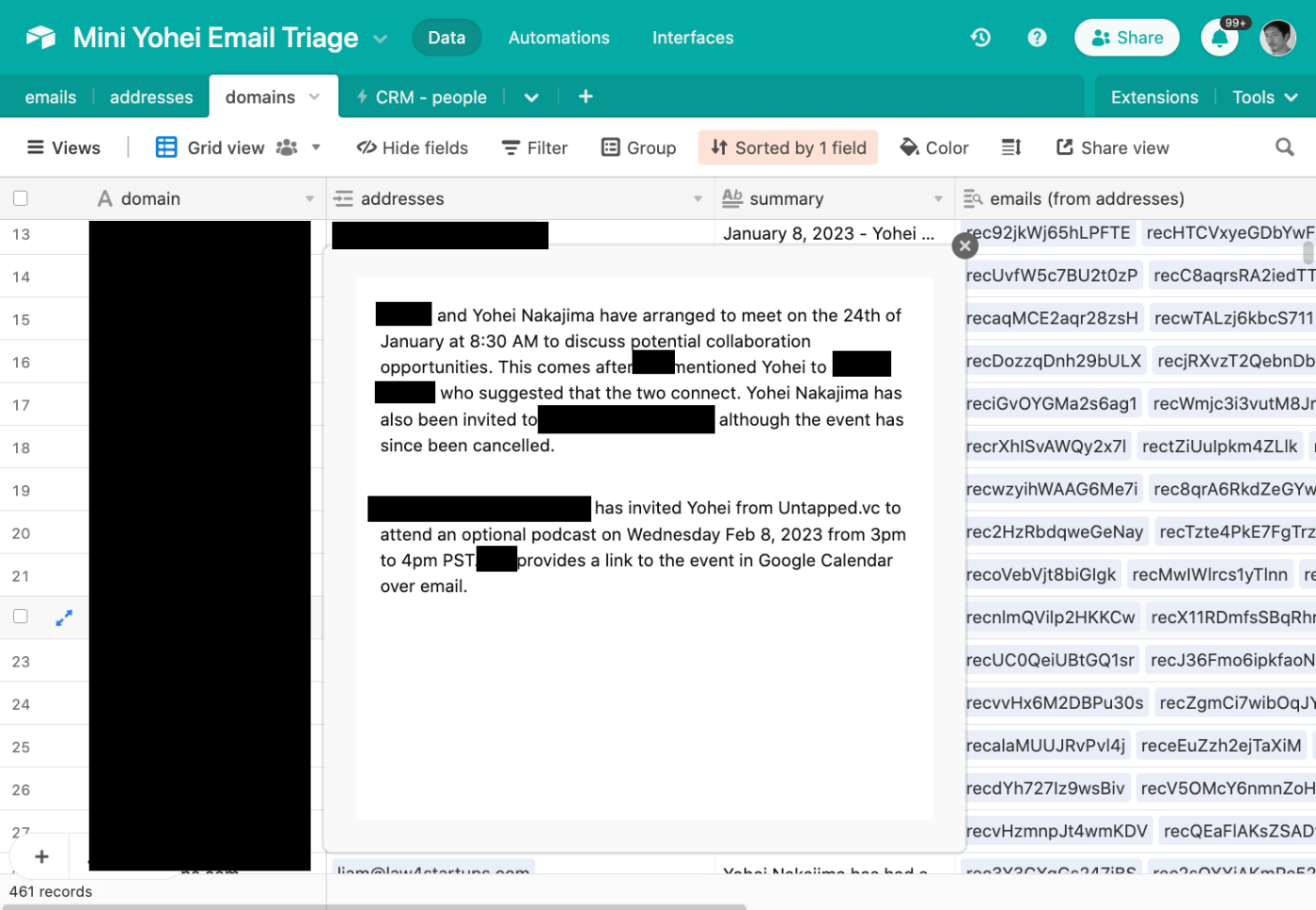
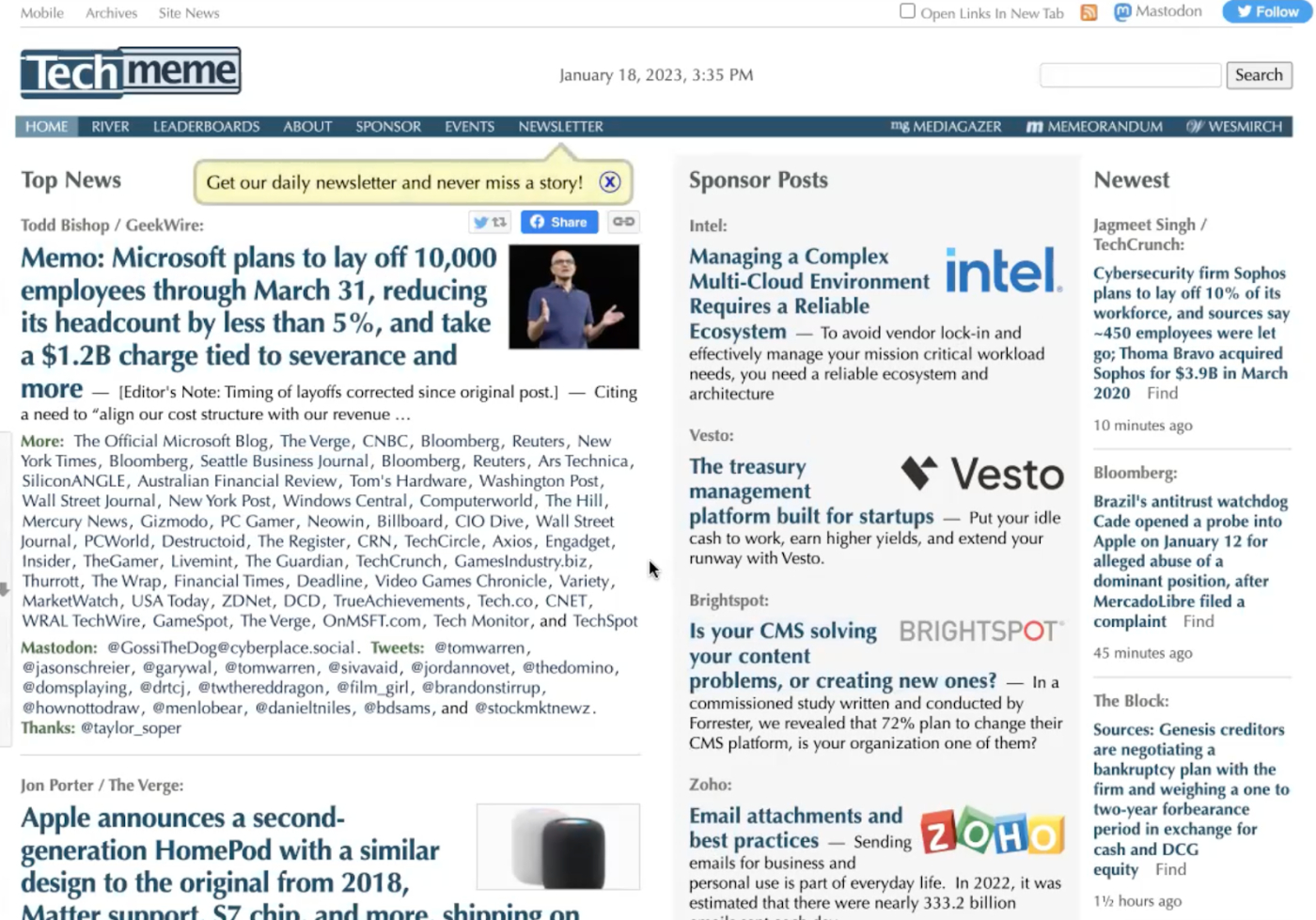
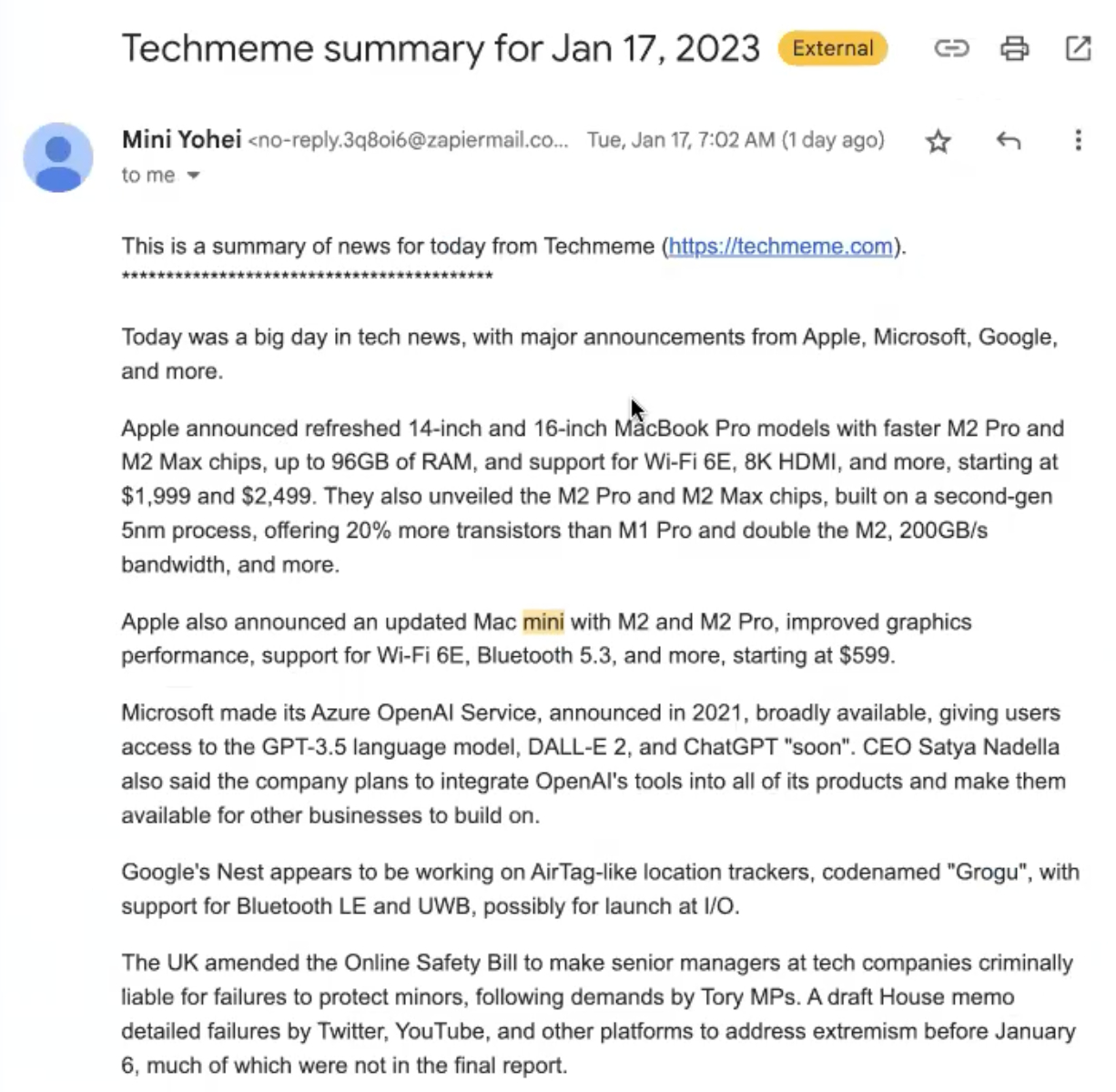
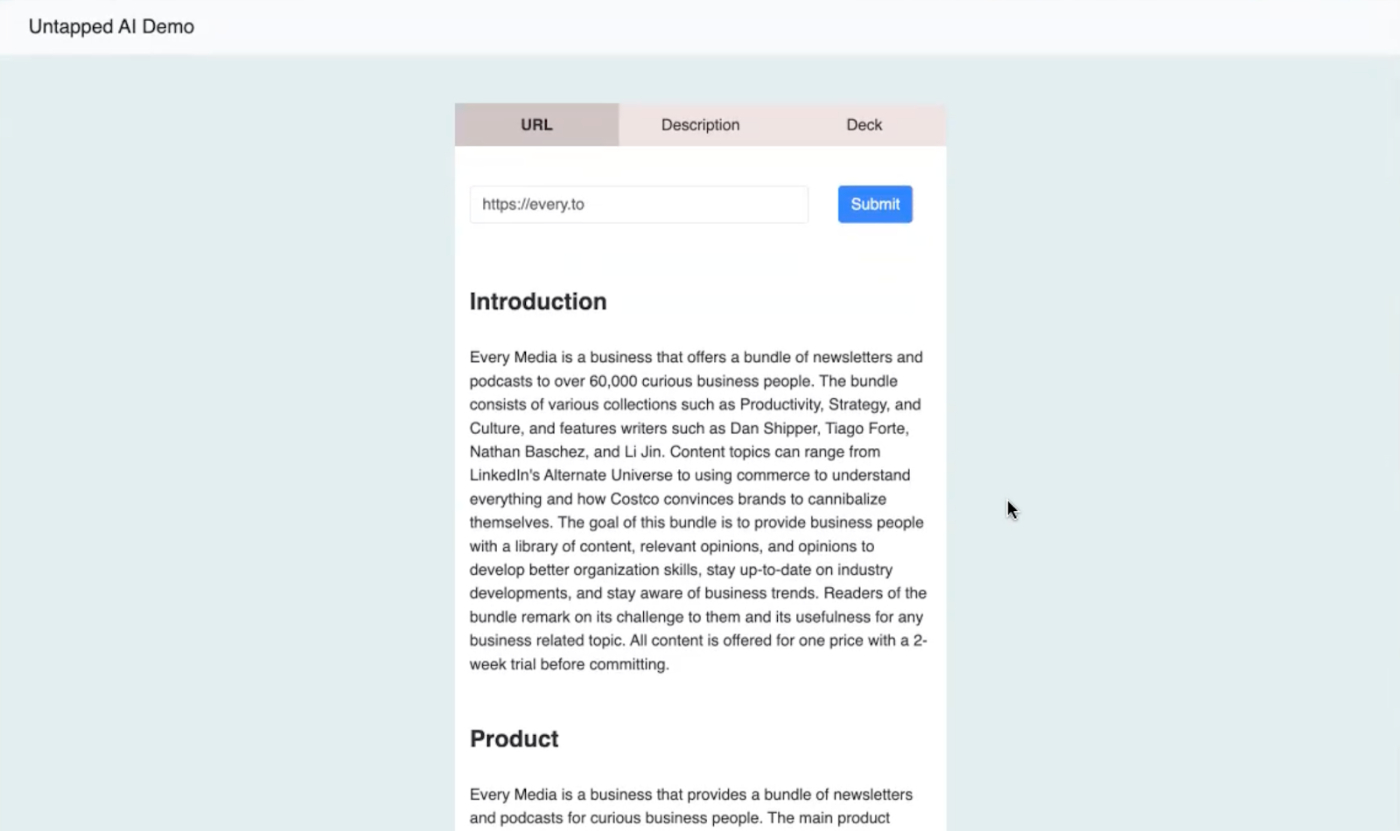
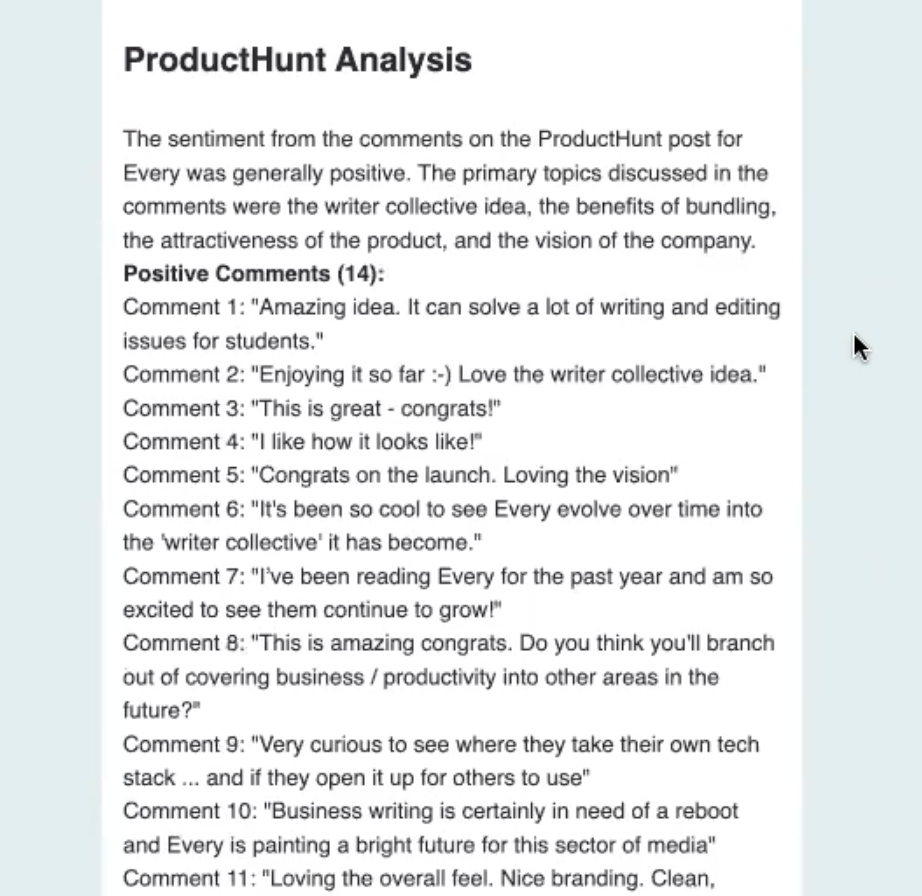
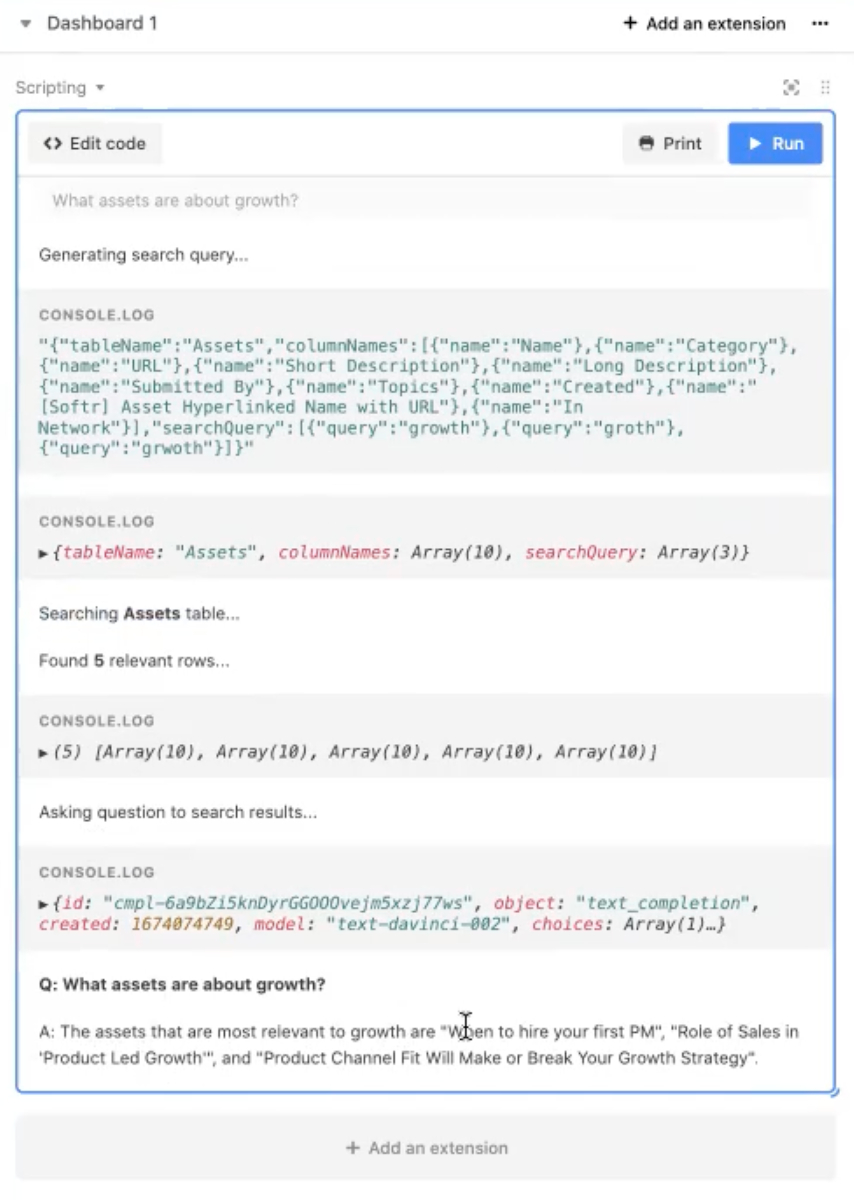
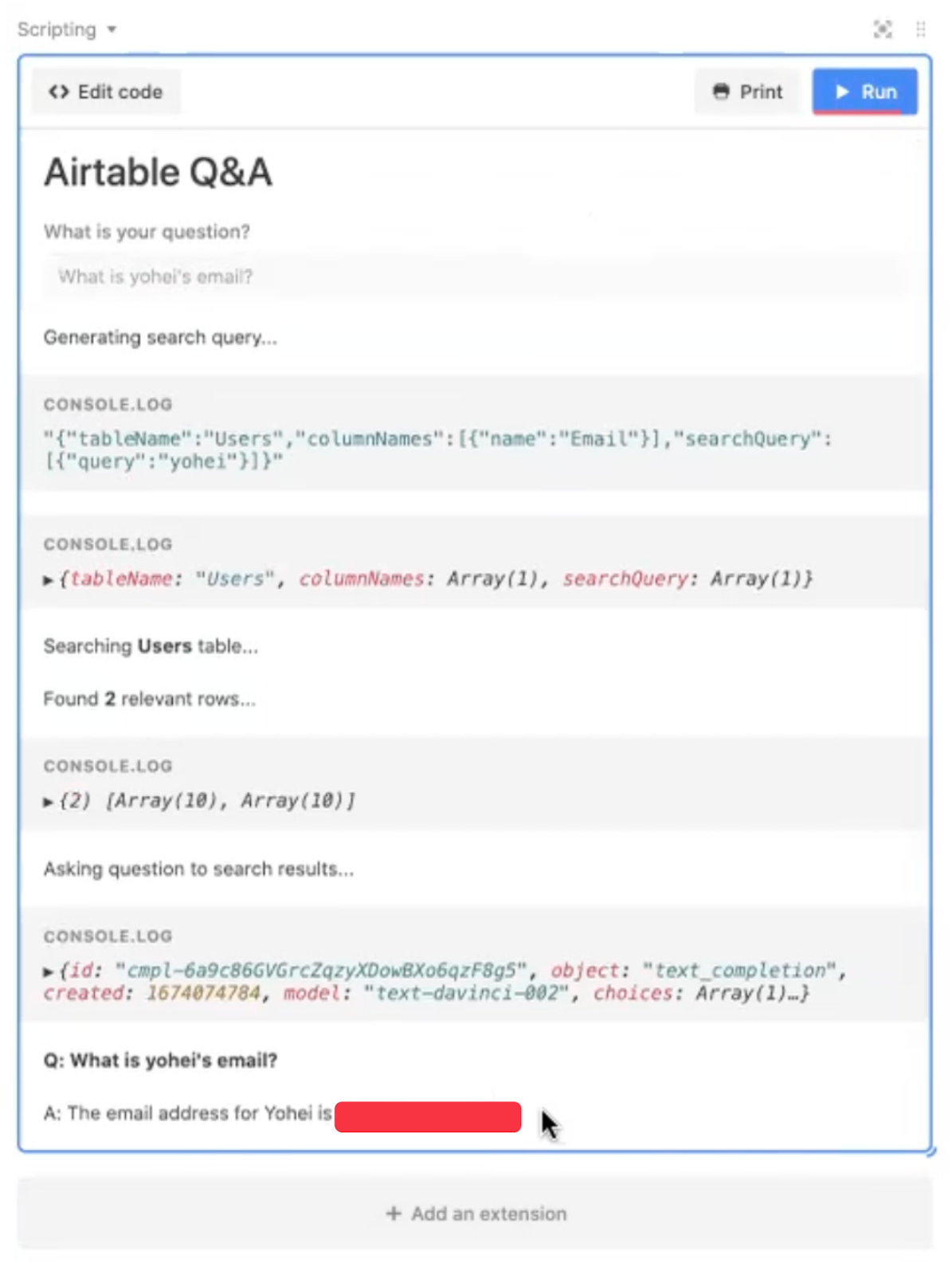










Comments
Don't have an account? Sign up!
Hi, how are these tools made?
@tigaes magic my human, magic.